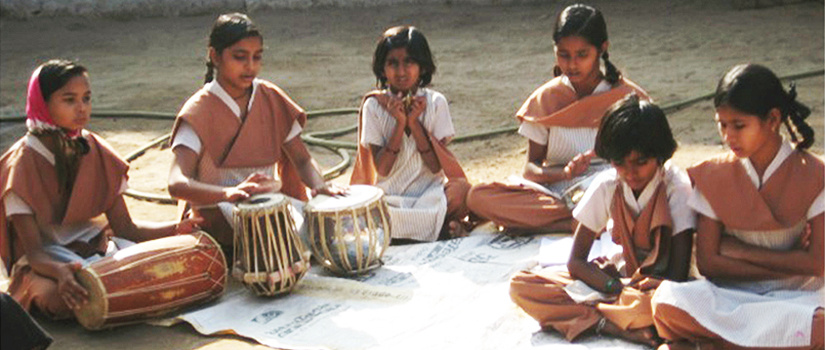India is a dynamic country that has experienced rapid economic growth during the past 15 years. Despite its impressive economic achievements, India is a country mired by great social stratification where a severe marginalization of women cuts across caste, class and geographic boundaries. It is estimated that close to 70 percent of the 35 million children who still don't attend school are girls.
As an ethnographer and sociologist of education, Dr. Payal Shah explores the socio-cultural and historical forces that perpetuate the marginalization of adolescent girls in India and examines social programs that are intended to promote girls' empowerment. Dr. Shah, assistant professor in Educational Studies, teaches courses on qualitative research and international and comparative education. She is also an advisory committee member of CarolIndia and a featured CarolIndia speaker the UofSC Walker Institute.
"Through my service as a William J. Clinton Fellow with the Indian NGO Pratham and 10 years of conducting research in India, I became disturbed by the severe marginalization of women and girls in India — particularly in rural India. From these experiences I became interested in social programs that sought to empower women and girls."
As a Ph.D. student in international and comparative education at Indiana University, Shah studied the history, culture and social context of India, and gained formal language training in Hindi and Gujarati. Supported by Fulbright-Hays and Herman B. Wells research grants, Shah conducted a two-year ethnographic study for her dissertation on a public residential school for girls in rural Gujarat — India's most industrialized state. That project examined the Kasturba Gandhi Balika Vidyala (KGBV) girls' education program and its role in addressing gender inequality and promoting girls' empowerment.
Shah employs a feminist qualitative research methodology that is fundamentally concerned with understanding social inequality and supporting social change. To complement traditional ethnographic methods, Shah uses a methodology called photovoice to provide insight into individual perceptions of social reality.
"This project," says Shah, "is a modest attempt to capture and share the experiences of girls and teachers at school. My hope is that in doing so, we can gain a more nuanced understanding of how gender inequality manifests itself in the lives of rural, marginalized Gujarati girls and the potential for school-based programs to foster girls' empowerment."
The KGBV is a national program that seeks to do more than increase educational access for traditionally marginalized girls. It partners with an NGO, CARE India, to deliver a curriculum and pedagogy focused specifically on fostering girls' empowerment. "As a public residential school, the KGBV has the potential to transcend the boundaries between the public and private spheres," explains Shah. "This enables it to challenge the norms, practices and beliefs that perpetuate patriarchy and inequality in a formal, institutional setting. During my ethnographic research, I was able to witness impressive growth in the KGBV girls that illuminates many dimensions of what I call "intrinsic empowerment" — growth in their self-confidence, sense of self, and awareness of marginalizing socio-cultural norms and practices. I also saw them start to articulate and envision — although very subtly — social and cultural change."
Seeking to ensure that her research has policy relevance, Shah has worked with the Gujarat State Gender Coordinator for the past four years contributing to reports presented to India's Ministry of Education. Several of these reports have been translated into different Indian languages and disseminated across the country.
With the generous support of the College of Education and Department of Educational Studies, Shah is continuing her research on the KGBV program by collecting longitudinal data on the same group of girls who were a part of her dissertation. She hopes to understand how the girls are — and are not — able to use the skills and perspectives they gained from the KGBV school as they move into the next phase of their lives.
Currently, Shah is working with the Director of the Mahaila Samakhya Program, which fosters development of new values through redesigned curricula and textbooks; the training and orientation of teachers, decision-makers and administrators; and the active involvement of educational institutions. In addition to her ongoing research with the KGBV program, Shah is pursuing other research projects that explore the education and empowerment link in different contexts in India. Shah has started a new project in the Indian Himalayas working with Ladakh's adolescent girls and young women while also beginning an in-depth project in rural Rajasthan with the Kavailya Education Foundation. The Rajasthan project will examine and re-conceptualize women's leadership and empowerment within the educational system.
By documenting educational experiences of adolescent Indian girls, Shah says that she will "help amplify what their voices can offer to the policy process and to theories of empowerment, education and development."
